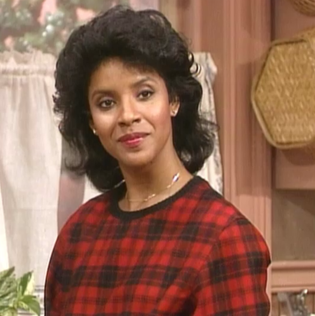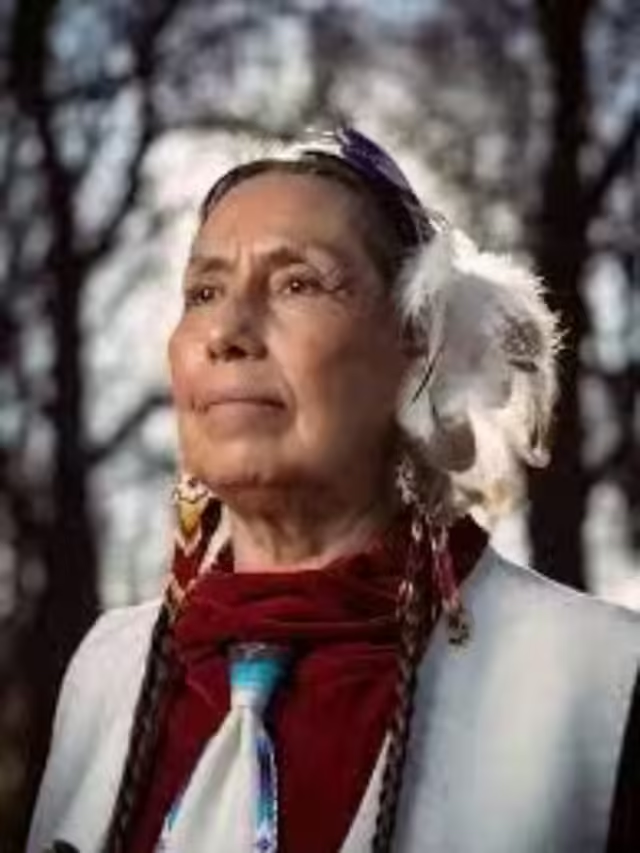
Vice President Kamala Harris with her signature silk press hairstyle during the Democratic National Convention. Her elegant and polished look has not only set a new standard in political fashion but has also sparked a broader conversation about the representation of Black women in leadership roles.
Kamala Harris and the Silk Press Revolution: What Her Hairstyle Is Saying About Black Women in Politics
In recent months, Kamala Harris has sparked a surprising but meaningful conversation in the world of politics — and it has nothing to do with policy. Instead, it’s about her hair. Specifically, her perfectly styled silk press, which has caught the attention of Black women across America. As Harris rises to the forefront as the Democratic presidential nominee, her hair has become more than just a style statement; it’s become a symbol of pride, professionalism, and a broader conversation about Black women in leadership.
The rise in popularity of the silk press in Black communities, fueled by Harris’s high-profile appearances, has opened up conversations about Black hair, politics, and the pressures Black women face in their careers. This article delves into the impact of Harris’s hair, the history of the silk press, and how Black women’s hairstyles intersect with their professional identities.
The ‘Presidential’ Silk Press Craze
For years, Tiffany Posh, a hairstylist in Columbia, Maryland, has been creating signature silk press hairstyles for her clients, most of whom are professional women. However, since Kamala Harris became the Democratic presidential nominee, the demand for her silk press has skyrocketed. Her clients now affectionately call the hairstyle “presidential,” a nod to Harris’s impeccable and iconic look.
“I’ve been doing silk presses for years, and my clients have always had that ‘presidential hair,’” Posh said, adding that Harris’s presence on the political stage has increased the hairstyle’s visibility. Professional women in D.C. and beyond are now flocking to salons, eager to embrace a look that exudes both elegance and authority.
The silk press isn’t a new trend; it’s a deeply rooted hairstyle within the African American community. This popular style involves straightening the hair without chemicals, resulting in a sleek and smooth finish. The technique has existed for decades, evolving from early hot comb methods in the 1900s. As women of color navigated job markets often fraught with racism, hair became a significant aspect of how they presented themselves professionally.
A Hairstyle That Speaks to Professionalism and Heritage
The reason why Kamala Harris’s silk press resonates so deeply with Black women isn’t just about aesthetics. It “feels familiar,” according to Nadia E. Brown, a professor at Georgetown University and co-author of Sister Style: The Politics of Appearance for Black Women Political Elites. The silk press has been a go-to style for many Black professional women, especially in environments where straightened hair is often perceived as more “acceptable.”
With Harris, this hairstyle symbolizes a delicate balance. It’s a style that feels familiar and relatable to Black women while being polished enough to meet the rigid beauty standards often imposed on women in professional and political spheres.
The silk press, with its simple yet elegant appearance, has long been a symbol of professionalism. As hairstylist Posh explains, it’s “an everyday go-to hairstyle for that professional woman in the office and on the go.” Harris has not only popularized this style but has also imbued it with a new level of prestige.
The Nostalgic Appeal of Harris’s Hair
Kamala Harris’s hairstyle brings about a sense of nostalgia for many Black women, especially millennials and Gen Xers. It echoes the classic look of Clair Huxtable from The Cosby Show—a character that embodied grace, professionalism, and maternal strength. The comparison is apt, as both Harris and Huxtable represent Black women navigating roles of authority while maintaining a level of relatability.

Clair Huxtable from The Cosby Show: The Iconic ’80s TV Mom, Embodying Elegance and Professionalism. Her classic silk press hairstyle remains a beloved symbol of Black beauty and empowerment, resonating deeply with audiences and influencing contemporary styles.
For Black women, seeing a high-profile political figure like Harris with a silk press makes a statement: you can achieve professional success without abandoning the beauty and versatility of Black hair. As Brown noted, Harris’s hairstyle represents “peak Black woman, professional.” This visibility sends a powerful message to younger generations about the possibilities of embracing their natural beauty in professional spaces.
Harris’s Haircare Secrets and Its Symbolism
At the Democratic National Convention in August 2024, all eyes were on Kamala Harris. Wearing a navy pantsuit and her signature silk press hairstyle, Harris captivated the audience with both her words and her appearance. Social media quickly lit up, with users admiring her flawless hair.
For many Black women, Harris’s attention to her hair reflects the extra care that women of color must often put into their appearance, especially when navigating public life. Whether on the campaign trail or at official engagements, Harris’s hair is always meticulously styled — a testament to the challenges Black women face in environments where appearances are highly scrutinized.
In a candid conversation on Keke Palmer’s podcast, Baby, this is Keke Palmer, Harris revealed her secret to her iconic silk press: she avoids excessive heat and uses a round brush to style her hair. These details, while seemingly minor, resonate with Black women who have spent years perfecting their own haircare routines.
Harris has been open about her hair journey. From childhood braids to a big chop during college, and now to her signature silk press, her hair evolution mirrors the experience of many Black women, who often navigate a variety of styles throughout their lives. Harris’s decision to grow out her hair as she entered public office reflects a common practice among professional Black women who seek to balance personal expression with societal expectations.
The Political Implications of Black Hair
As Harris’s hair gains widespread attention, it has reignited a larger conversation about Black women’s hair in politics. Hair has long been a political statement for Black women, often laden with societal expectations, judgments, and biases. For instance, when Michelle Obama stepped onto the stage at the 2024 Democratic National Convention sporting a braided ponytail, it marked a significant shift in how Black women’s hair is perceived in political spaces.
Michelle Obama’s hairstylist, Njeri Radway, explained that the goal of her sleek braided ponytail was to “mirror her speech, both powerful and soft.” This marked a departure from the silk presses Obama often wore during her time in the White House, reflecting a shift in her own approach to public appearances.
In a 2022 interview, Obama revealed that she had wanted to wear braids during her time as the First Lady but felt the country wasn’t ready for that. She recognized that her hairstyle could overshadow the administration’s work, underscoring the fact that Black women in the spotlight often feel immense pressure to adhere to certain beauty standards.

The Burden of Appearance for Black Women Politicians
The pressures of appearance are not unique to Kamala Harris and Michelle Obama. Missouri Congresswoman Cori Bush also shared her experience of wearing straight styles during her early days in Congress, though she personally preferred braids. Bush described this experience as feeling inauthentic, highlighting the discomfort many Black women feel when they have to conform to traditional beauty standards in professional settings.
Similarly, Ayanna Pressley, a congresswoman from Massachusetts, has openly discussed her struggle with alopecia, a condition that causes hair loss. Her choice to wear twists or wigs became intertwined with her political identity, to the point where her hair became a defining part of her brand.
As Pressley remarked in an interview, “everything I do is political,” reflecting how Black women’s hair choices are often scrutinized and politicized in ways that non-Black women rarely experience. This pressure extends far beyond individual preference; it’s a reflection of broader societal expectations about what professionalism and leadership should look like.
The Silk Press Movement and Its Growing Popularity
As the 2024 presidential election approaches, the demand for silk presses shows no signs of slowing down. Tiffany Posh, like many stylists, is booked months in advance as more women look to adopt the “presidential” look. With cooler weather approaching and the political spotlight shining on Harris, hairstylists across the country are preparing for back-to-back silk press appointments.
This hairstyle appeals to a wide range of women, from those in their 20s to women in their 40s and beyond. According to Posh, younger women are particularly drawn to the style, describing it as empowering and elegant. After leaving the salon, many clients express feeling “grown” and “important,” a testament to how something as simple as a hairstyle can transform a woman’s self-image.
Conclusion: The Power of the Silk Press
Kamala Harris’s silk press has become more than just a hairstyle — it’s a cultural movement. As Black women across the country embrace the look, they are reclaiming their identity and challenging the traditional beauty norms that have long dominated professional spaces. Harris’s signature look is a powerful reminder that Black hair is versatile, beautiful, and deserving of the same respect and admiration as any other hair type.
As we move forward, the conversations surrounding Black hair in politics will continue to evolve. Figures like Kamala Harris, Michelle Obama, Cori Bush, and Ayanna Pressley are paving the way for future generations of Black women to feel confident and authentic in their professional appearances. Their stories highlight the importance of representation and the role that personal style plays in shaping public perception. In the end, the silk press is more than just a hairstyle; it’s a symbol of empowerment, progress, and the resilience of Black women in leadership.
















No responses yet